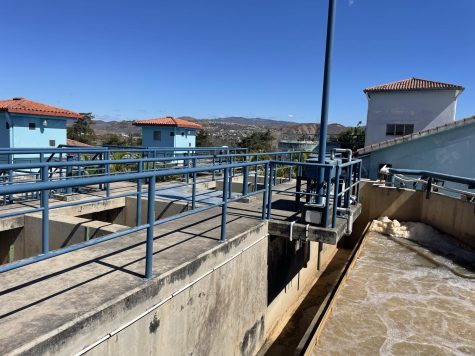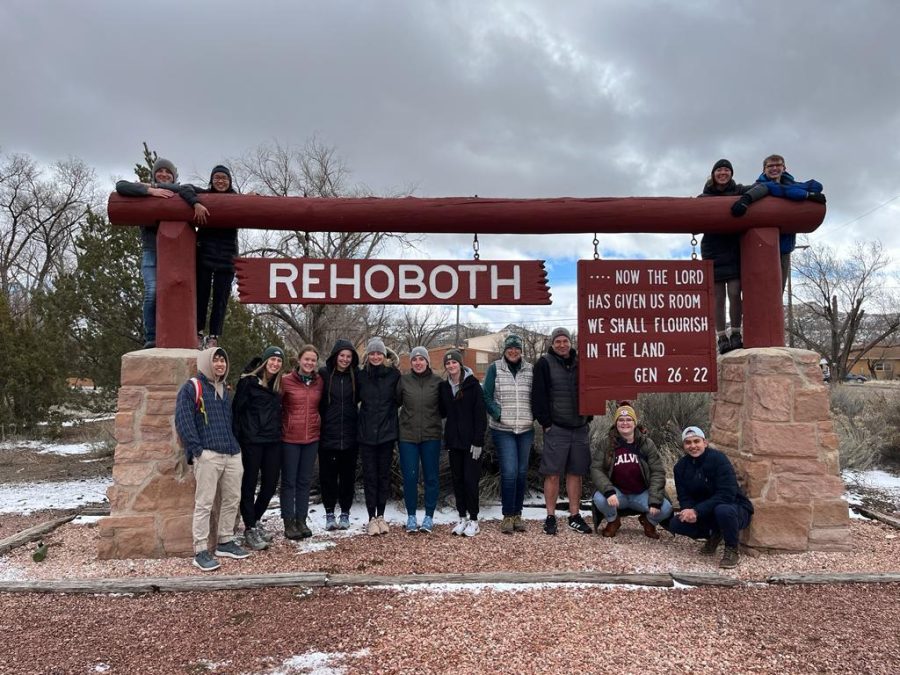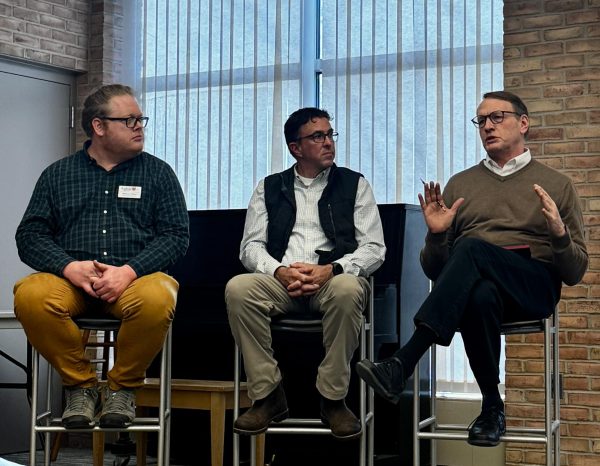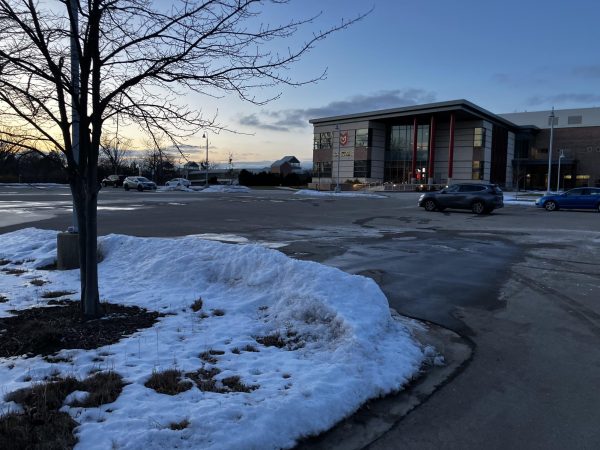Students learn and work with Clean Water Institute in New Mexico and Honduras
Students volunteered at Rehoboth Christian School in New Mexico as part of a public health class with the Clean Water Institute.
Over spring break, students in a public health class about the impact of clean water traveled to New Mexico and Honduras on a trip with Calvin’s Clean Water Institute (CWI) funded by The Sawyer Foundation, a nonprofit organization that creates water filters.
The CWI is an organization at Calvin University whose primary mission is to provide communities around the world, where the supply of clean water is scarce, with the appropriate infrastructure and education to enable them to generate sustainable supplies of clean water.
The institute currently has several ongoing projects in Ecuador, Jordan, Liberia and Honduras. Through the institute, students have opportunities to travel to and learn in these locations. Over spring break, 28 students traveled to the Navajo Nation in New Mexico and Tegucigalpa, Honduras.
The trip consisted mainly of students touring current water supply facilities, interacting with members of local communities and exploring the landscapes.

Students inspected ongoing work that the CWI is involved in and learned from other organizations working in similar spheres.
According to Luke Witvliet, a sophomore studying biochemistry, CWI intentionally tries to work closely with communities so that those communities are able to help themselves.
Students worked closely with two specific nonprofits: Association for a More Just Society (ASJ) in Honduras — whose mission is to help develop better communities in the country — and Water With Blessings, which is a nonprofit water purification ministry with divisions in Honduras and New Mexico.
Water With Blessings is an organization with settlements in Navajo, Honduras, Kenya, Haiti, Zambia and other parts of the world. The primary approach of Water With Blessings towards tackling the issue of unclean water is through creating a community-based network, with communal work in attaining clean water and educating one another on the importance of having access to clean water. The organization exclusively works with local women, called “water women,” who help supply Sawyer filters to their communities.
Life in Honduras
During the trip to Honduras, CWI students and professors lived in a Franciscan friary called the Convento San José de Cupertino.
Erica Boldenow, professor of biology and public health at Calvin, told Chimes that the connection with the friars came through Calvin’s initial connection with The Sawyer Foundation.
Sister Larraine Lauter, a leader at Water With Blessings who collaborated with Calvin on the trip, knew the friars of Convento San José de Cupertino, and she recommended that the CWI students stay with them. “They’re not directly connected,” said Boldenow, but both associations supported the Calvin group.
Students on the trip spoke highly of the friars. “They were super fun,” said senior Elizabeth Booze. “The friars were very chill. There was one younger one that would walk around in slides and a t-shirt. One of them played soccer with us.”
Boldenow was grateful to the friars for giving them a place to stay, feeding them and allowing training sessions to occur at the friary. She told Chimes that the friary was “a very welcoming and hospitable environment.”
“I think sometimes we get a misperception of what nuns and friars do,” Boldenow said. “We have really weird stereotypes that we associate with them, and they’re just really wonderful people that are helping and feel really dedicated to God’s calling and helping their neighbors.”
“Public health work is hard, and we don’t always do it very well. So we’ve just really appreciated the opportunity to learn from the different organizations that we get to work with,” Boldenow said, thinking of the work of Water With Blessings and the friars.
Booze felt similarly. “If you have the opportunity to go to Honduras, you should. The people there are just really amazing, and I love the work the organization does. And they have trained people from the community to help the community; it’s not outsiders, they’re doing it themselves. They really care about the people they serve.”
Learning in the Navajo Nation
Students who went to the Navajo Nation (Naabeehó Diné Biyaad) described the trip as an experience in which they were able to learn from a culture and society they were unfamiliar with.
“I was not prepared for the shock that people can be happy to live in a place where water was so scarce, yet there the Navajo were. That place is truly their home, and they are as proud of it as I am of Michigan,” said Nathaniel Anderson, a senior studying biology.
“I was very moved by the Navajo people’s spirituality and connection to the land which inspired me to reflect on my own beliefs and values. Meeting Navajo members also gave me a better appreciation for the diversity of human experiences as we addressed a public health issue such as clean water within a different cultural approach,” said Eduardo Aguilar, a junior studying biochemistry.
Two-way education
The CWI’s educational objectives go two ways. Educating local communities about clean water is one goal, but so is educating Calvin students involved about global needs and solutions.
“I think what’s cool about having something like this on campus is that they’re interested both in actually making good sustainable changes in places that lack access to clean water, . . . [and in] educating students about issues that people . . . around our country and world face,” said Witvliet.
Although the trip did fulfill core requirements, a number of students who went on the trip did so because of other motivations.
“As a nursing student, my primary motivation was to understand public health in a context other than the one I was trained in. I was also eager to improve my Spanish,” said Lauren Holwerda, a senior studying nursing at Calvin.









